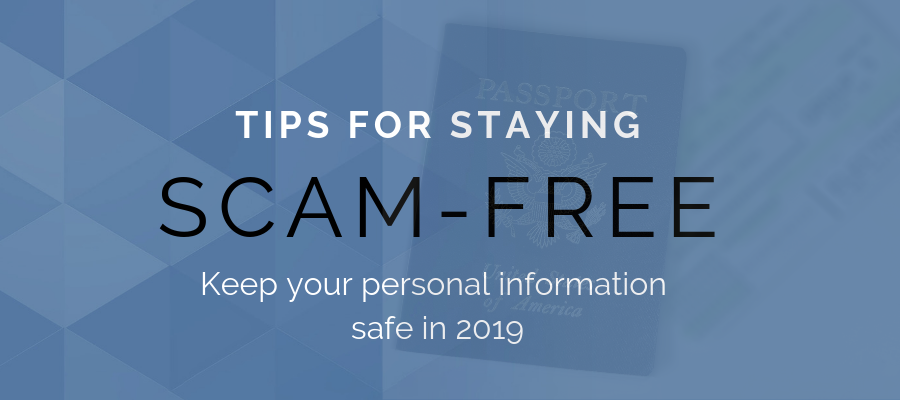Identity thieves and scam artists are relentless in finding ways to steal your personal information and your money.
Make sure you’re following these five steps to help make their jobs more difficult:
- Protect your computer (and other devices). Start your protection by installing software to your computer to guard against viruses, spyware and other malicious bugs. These can be used to steal your personal data or to direct you to bogus websites. And remember to update your protection regularly on all devices. In addition, don’t use free Wi-Fi when accessing any sensitive data or making transactions.
- Clean out your wallet or purse. Make sure you’re not carrying PIN numbers for debit or credit cards written on a scrap of paper. If you are, anyone stealing your wallet will have open access to your checking account. Sign all your cards. And don’t carry your Social Security card with you.
- Obtain a free copy of your credit report. You can order a free copy of your credit report from at least one of the three major agencies from the Annual Credit Report website. Review it for mistakes, accounts you don’t recognize, or strange credit inquiries. If you find something wrong, report it immediately.
- Use your phone number sparingly You may want to add your telephone number to the National Do Not Call Registry. If a telephone solicitor calls, ask to be put on their “do not call” list and then hang up.
- Don’t become a phishing victim. Phishing refers to bogus e-mails or telephone calls that trick you into disclosing personal or financial information. It may be an email claiming to be from your bank, a retailer or a government agency. They may ask you to update account information. Never click on an attachment or follow a link to a site unless you know the sender.You could also get a call from someone claiming to be a bank security officer who wants to confirm your PIN. Never reveal personal data online or over the phone unless you’ve initiated the contact and you’ve confirmed the identity of the recipient.
Remember, The IRS won’t initiate contact with you by email, text messages or social media channels to request personal or financial information.
By following these and other important steps, you can greatly decrease the risk of becoming a victim of a scam or crime.

